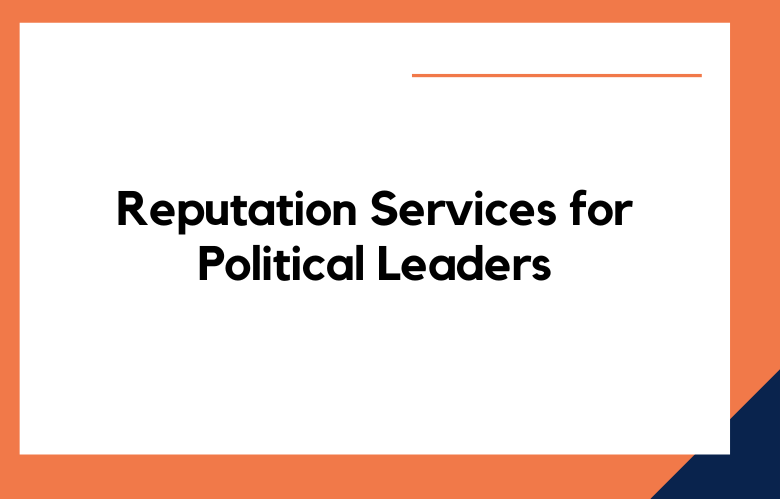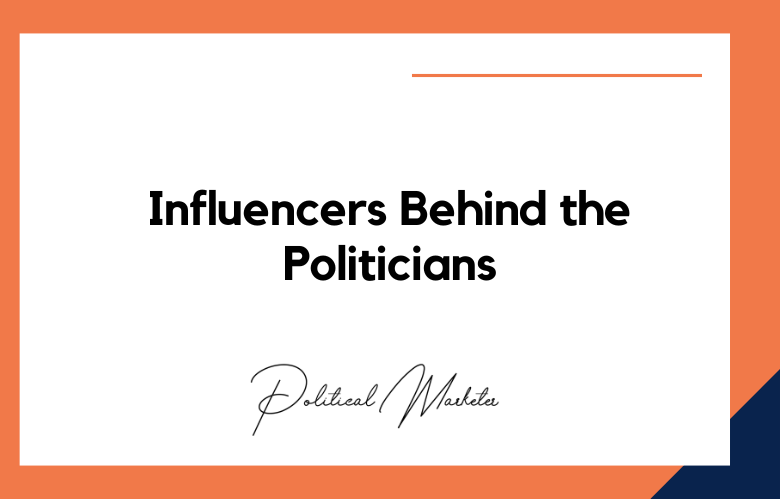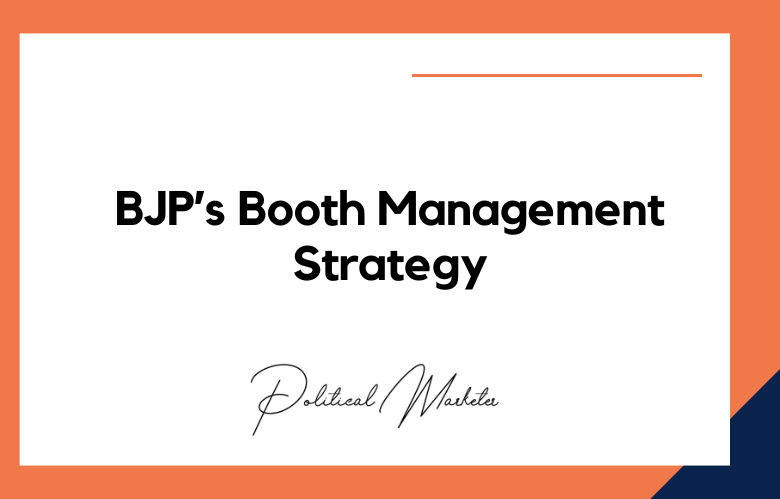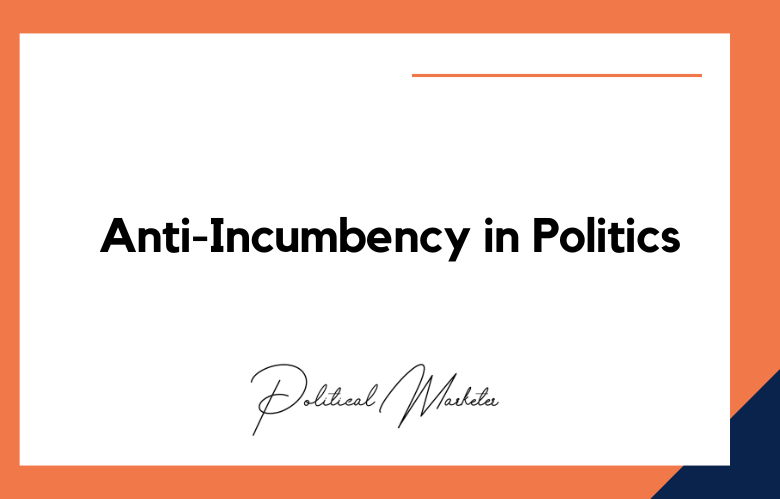In the world of politics, reputation is everything. How the public perceives you can make or break your career, and in today’s digital age, managing your image has become more challenging than ever before. Political scandals, rumors, and missteps can quickly go viral and damage your reputation. We’ll explore some common political reputation management challenges and how politicians can overcome them.
Political Reputation Management Challenges: How to Overcome the Obstacles
Social Media Backlash
Social media can be a double-edged sword for politicians. While it provides a great platform to interact with constituents and share information, it exposes them to intense scrutiny.
A tweet or post that is insensitive or misinterpreted can quickly lead to backlash. To avoid such situations, politicians must be mindful of what they post online and hire social media managers to help handle their online reputation. They must also engage with their followers and respond to criticism immediately.
Negative Media Coverage
The media plays a crucial role in shaping public opinion, and politicians must know how they are portrayed in the news. Negative media coverage can damage a politician’s reputation but can also be an opportunity to respond and shape the narrative.
Politicians must proactively communicate with the media to overcome negative media coverage and build relationships with journalists. They should also find ways to counter misinformation with facts and respond promptly to allegations.
Personal Scandals
Personal scandals can be uncomfortable and even career-ending for politicians. From extramarital affairs to tax fraud, these scandals can quickly damage a politician’s reputation. Politicians need to be transparent and respond promptly to such allegations.
They may need to apologize or create a crisis management plan to mitigate the damage. They should also seek professional help to deal with the emotional and mental impact of personal scandals.
Negative Ad Campaigns
Negative ad campaigns are not new to politics but have become more prevalent recently. These ads can be misleading, defaming, distorted, and easily damage a politician’s reputation.
It’s important for politicians to respond to such ads with their messaging and to remain focused on their campaigns. They should also consider hiring professionals to handle their ad campaigns and conduct opposition research to counter negative attacks.
Dealing with Public Perception
Politicians need to be aware of how the public perceives them. They need to cultivate a positive image and be mindful of how their actions will be interpreted. They should also be transparent and accessible to the public and respond promptly to criticism. Building a positive public image takes time, effort, and consistency, but it’s one of the most important aspects of political reputation management.
Navigating the Waters of Political Reputation Management: Tackling the Challenges Ahead
Political reputation management is a challenging and complex task that requires a careful balance of strategic communication, stakeholder engagement, and crisis management.
In today’s hyper-connected world, where information travels at lightning speed and can be easily amplified through social media, political leaders must be acutely aware of the potential impact of their actions and words on their reputation and the perception of their leadership.
One of the critical challenges of political reputation management is ensuring that the public perception of a leader aligns with their intended image and message.
This requires a deep understanding of the critical drivers of public opinion and a robust communications strategy that can effectively influence these drivers. Effective reputation management also requires constant monitoring of public sentiment and an agile response to emerging issues or crises that can quickly erode a leader’s reputation.
Building a Strong Political Image: Overcoming Reputation Management Hurdles
Building a solid political image is a crucial aspect of any politician’s career, given its implications on their chances of winning elections and their overall public perception.
However, achieving this feat can be challenging due to the various hurdles surrounding reputation management. These hurdles could range from negative media coverage to criticisms from political opponents and scandals threatening to destroy a politician’s image.
Despite these challenges, politicians can employ various strategies to overcome reputation management hurdles and build a solid political image. Firstly, it is essential to be proactive in addressing negative media coverage and criticisms from political opponents. Politicians should take control of narratives by clearly communicating their positions and actions to the public using various media channels.
The Art of Perception: Conquering the Challenges of Political Reputation Management
Understanding Perception
The first step in conquering the challenges of political reputation management is understanding perception. Perception refers to how people view and interpret information, which can significantly influence their opinions and actions. Knowing how the public perceives your words and actions is essential as a politician.
Building a Strong Foundation
A strong foundation is crucial for managing a political reputation. This includes establishing clear values, principles, and goals that align with your beliefs and the needs of your constituents. It also involves consistent messaging and actions, as inconsistencies can damage your reputation.
Effective Communication
Effective communication is vital when it comes to managing political reputation. This includes not only what you say but also how you say it. Your tone, body language, and nonverbal cues can all impact how others receive your message.
Transparency
Transparency is essential for maintaining trust with the public. In today’s digital age, hiding information from the media or the public is nearly impossible. As a politician, it is essential to be open and honest about any mistakes or controversies that may arise.
Responding to Criticism
No matter how carefully you manage your reputation, criticism will inevitably come your way as a politician. The key is to handle criticism effectively by acknowledging it, addressing any valid points, and staying calm and professional in your response.
Utilizing Social Media
Social media has become an integral part of politics and can be a powerful tool for managing reputation. It lets politicians directly communicate with constituents and control their narrative through posts and updates.
Monitoring Public Opinion
Politicians must stay informed about public opinion on current issues and their performance in office. This can help them anticipate potential challenges to their reputation and proactively address them before they escalate.
Building Relationships
Building positive relationships with the media, other politicians, and constituents can also help with reputation management. These relationships can provide support and positive coverage during challenging times.
Crisis Management
Inevitably, there will be crises that arise during a political career. Having a crisis management plan is essential to respond quickly and effectively to any issues that may threaten your reputation.
Staying True to Yourself
Staying true to yourself and your values is the most critical aspect of managing a political reputation. Trying to please everyone or constantly changing your beliefs and actions to fit public opinion will only damage your reputation in the long run.
Mastering the Political Reputation Game: Overcoming Obstacles with a Strategic Approach
In today’s ever-increasing political turmoil, mastering the political reputation game has become more critical. To effectively navigate the exceedingly complex and often treacherous political landscape, embracing a strategic approach that enables one to overcome obstacles and effectively manage one’s political reputation is essential.
One of the critical challenges of this game is that political reputations can be incredibly fragile and easily undermined by a wide range of factors. From gaffes and scandals to political rivals and hostile media coverage, countless obstacles can derail even the most carefully crafted political reputation.
Conclusion:
Political reputation management is complex, and politicians face various challenges in managing their image. However, they can overcome these obstacles and build a positive reputation by being proactive, transparent, and responsive.
Social media, personal scandals, negative media coverage, negative ad campaigns, and public perception are some common challenges that politicians face. Still, they can successfully navigate these challenges with the right strategies and tactics. Ultimately, political reputation management is about integrity, honesty, and authenticity, and politicians who embody these values are more likely to succeed in managing their reputation.
Call: +91 9848321284
Email: [email protected]
Frequently Asked Questions (FAQs)
What is political reputation management?
It is the strategic process of shaping, protecting, and enhancing the public image of political leaders or parties through communication, media control, and crisis response.
Why is reputation important in politics?
A strong reputation builds voter trust, credibility, influence, and electoral success. Damaged reputations can lead to loss of public support and political opportunities.
What are common reputation risks for politicians?
Scandals, misinformation, policy failures, controversial statements, inconsistent messaging, and association with corrupt figures are key threats.
How does social media affect political reputation?
Social media amplifies both support and criticism, making real-time monitoring and response crucial to manage narratives and prevent damage.
What is the role of media in shaping political reputation?
Mainstream and digital media influence how leaders are perceived, often acting as gatekeepers of public opinion and framing political narratives.
How can fake news harm a politician’s image?
Fake news can spread misinformation quickly, influence public sentiment, and lead to irreversible reputational damage if not countered swiftly.
How should politicians respond to online criticism?
Responses should be timely, factual, respectful, and consistent with the leader’s values to maintain integrity and credibility.
What is a reputation crisis in politics?
A reputation crisis occurs when a political figure faces sudden and widespread backlash or loss of credibility due to a scandal, gaffe, or mismanagement.
How can politicians prepare for reputation crises?
By having a crisis communication plan, media training, real-time monitoring systems, and trusted advisors ready to respond promptly.
What is the importance of transparency in political reputation?
Transparency builds public trust and reduces the impact of negative news, as openness shows accountability and responsibility.
Can a damaged political reputation be rebuilt?
Yes, through consistent behavior change, public apologies, strategic communication, community engagement, and time-bound rebranding efforts.
How does personal branding relate to political reputation?
Personal branding reflects a politician’s values, tone, and behavior; a strong personal brand can shield or magnify reputational risks.
What role does public relations (PR) play in reputation management?
PR manages public messaging, crafts narratives, handles media interactions, and builds positive visibility for political leaders.
Are negative campaigns a threat to political reputation?
Yes. Attack ads, smear campaigns, and disinformation from opponents can distort public perception and require proactive rebuttals.
How does AI impact political reputation management?
AI enables faster sentiment analysis, fake news detection, and message optimization, but can also be used maliciously to manipulate narratives.
What tools are used to monitor political reputation online?
Tools include media monitoring platforms, sentiment analysis software, Google Alerts, social listening tools, and crisis dashboards.
How do cultural sensitivities affect political reputation?
Insensitive remarks or actions can lead to backlash from cultural, religious, or regional groups, making contextual awareness critical.
How should politicians handle leaked private information?
They should issue clear, honest statements, assess the damage, and take legal or strategic steps to contain the fallout.
What’s the role of ethics in sustaining political reputation?
Upholding ethics enhances long-term reputation, fosters respect, and differentiates genuine leadership from opportunistic behavior.
How can political parties protect their collective reputation?
By enforcing internal discipline, maintaining consistent values, addressing misconduct transparently, and aligning leadership messaging.











